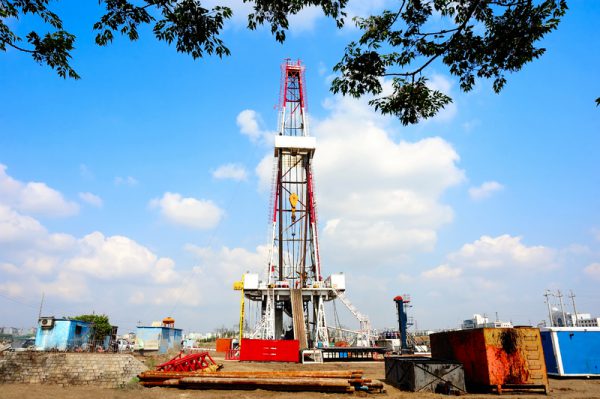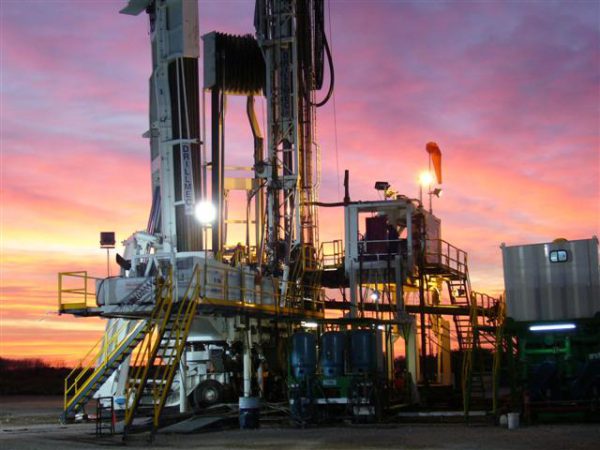To implement Texas House Bill 2771 (2019), steps are being taken to transfer permitting responsibility for certain oil & gas-related discharges to surface water from the Railroad Commission of Texas (RRC) and the U.S. Environmental Protection Agency (U.S. EPA) to the Texas Commission on Environmental Quality (TCEQ), which permits most other discharges to surface waters in the state.
The current permitting scenario for these oil & gas discharges to Texas surface waters is complicated. The RRC has state authority to permit wastewater discharges from oil & gas facilities but has not been delegated authority to manage the National Pollutant Discharge Elimination System (NPDES) permitting program. This can result in oil & gas facilities needing permits from both the RRC and the U.S. EPA. The RRC’s “minor” permits are for discharges of limited duration and/or limited scope. Discharges outside of those limitations require a U.S. EPA permit.

The permits being transferred are for discharges to surface waters of:
- Produced water (wastewater associated with oil & gas exploration, development, and production activities);
- Hydrostatic test water (hydrostatic testing of tanks and pipelines); and
- Gas plant effluent (cooling tower blowdown, reverse osmosis reject wastewater, and compressor condensation).
In order for these permits to be transferred, the below items need to occur and everything must be submitted in a package—called the Texas Program Package—to the U.S. EPA.
- May 22, 2020: The TCEQ adopted by reference (30 TAC 305.541) the U.S. EPA’s effluent limitations guidelines for the affected point source categories, oil & gas extraction (40 CFR 435), and centralized waste treatment (40 CFR 437). It was effective June 11, 2020.
- June 16, 2020: The TCEQ and the RRC approved amendments to the Memorandum of Understanding (MOU) between them to transfer responsibilities related to regulation of discharges of produced water, hydrostatic test water, and gas plant effluent after the TCEQ receives approval from the U.S. EPA. MOU changes are effective July 15, 2020.
- July or August 2020 (publication date TBA): The Texas Pollutant Discharge Elimination System (TPDES) General Permit TXG670000 was amended by the TCEQ to include the currently excluded oil & gas hydrostatic test water discharges upon delegation to the TCEQ by U.S. EPA. The U.S. EPA has approved the amendment to the General Permit.
- In Progress: Memorandum of Agreement addendum between the TCEQ and the U.S. EPA for planned NPDES delegation of the specified oil & gas discharges.
- In Progress: The TCEQ is preparing the NPDES Application to the U.S. EPA.
- September/October 2020 (anticipated): Statement of Legal Authority to be published by the Texas Attorney General.

Following submittal of the package:
- The U.S. EPA will determine completeness and publish notice in the Federal Register (date TBA);
- A public comment period will be observed (date TBA); and
- A public hearing will occur (date TBA).
Upon approval of the Texas Program Package by the U.S. EPA, the TCEQ Water Quality Division would review and process surface water discharge permit applications for the listed types of discharges. The following would be included in the permitting transition from the U.S. EPA/RRC to the TCEQ.
- Pending Applications: Upon delegation to the TCEQ
- Existing Permits: Upon renewal/amendment
Additionally, the TCEQ Office of Compliance and Enforcement will investigate compliance with the affected permits; address violations in follow up investigations; and manage responses for complaints, emergency response, waste management, or other actions within the agency’s authority. The following would be included in the enforcement transition from the U.S. EPA/RRC to the TCEQ.
- The RRC: Upon delegation
- The U.S. EPA: Upon delegation except permits with a pending enforcement action, then upon completion of the enforcement action.
For more information, contact Sharon Crabb (512-225-8105 or scrabb@cecinc.com) of CEC Austin.
Did you know? In addition to our Austin office in Texas, we now also have a Houston office!
Post a Comment